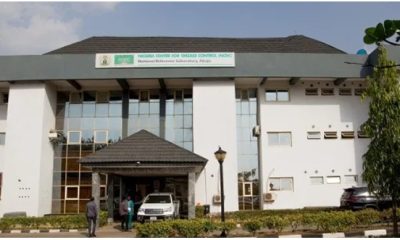Health
Medical Experts Warn Of Rising Costs, Scarcity Of Diabetes Medications In Nigeria


Medical experts have raised concerns over the soaring costs and scarcity of diabetes medications in Nigeria.
They also revealed that the number of individuals living with diabetes in the country has risen to approximately 14 million.
Marking World Diabetes Day, themed “Breaking Barriers, Bridging Gaps”, the experts stressed the urgent need for action.
Speaking to our correspondent, Consultant Physician and Diabetologist, and First Vice President of the Diabetes Association of Nigeria, Dr Mansur Ramalan, lamented the escalating drug costs and their unavailability.
“Diabetic patients are suffering from both the high cost and unavailability of drugs because three major companies marketing these drugs, including Sanofi Aventis, a major insulin producer, have exited the country.
“These drugs are now sold through third parties, which has naturally led to price increases. Furthermore, due to the exchange rate challenges, prices have skyrocketed. This has created problems of affordability, availability, and accessibility for patients,” he stated.
Dr Ramalan urged the government to intervene, highlighting the plight of diabetes patients.
“This year, the association wrote to the government about the cost of drugs, but no action was taken. Last week, we heard about free caesarean sections for women; if that can be done, similar measures can address our concerns.
“Currently, Nigeria has a diabetes prevalence rate of 4 to 6 per cent, equating to an estimated 12 to 14 million people living with diabetes. This figure is rising yearly. In 1991, the prevalence rate was 2.4 per cent, but it has since surged to approximately 5.7 to 6 per cent,” he added.
Professor Tanimola Akande, a Public Health expert at the University of Ilorin and former National Chairman of the Association of Public Health Physicians of Nigeria, corroborated these concerns.
“Diabetes is a chronic non-communicable disease with a high prevalence and burden in Nigeria. World Diabetes Day provides an opportunity to raise awareness and offer screening for the population. It also allows governments and stakeholders to prioritise activities and programmes that address diabetes prevention and control,” he said.
The World Health Organisation’s Regional Director for Africa, Dr Matshidiso Moeti, warned last Thursday that the number of people living with diabetes in Africa is projected to rise to 54 million by 2045, marking the highest predicted increase globally if urgent action is not taken.
Dr Moeti noted, “In the WHO African Region alone, more than 24 million adults currently live with diabetes, half of whom remain undiagnosed. Left untreated, diabetes can lead to complications such as heart disease, stroke, nerve damage, kidney failure, lower-limb amputation, and blindness.
“Without urgent interventions, the number of people living with diabetes in the region will rise to 54 million by 2045, posing a dual health and economic burden, including catastrophic individual spending to manage the disease.
“Africa also has the lowest investment rate in diabetes care globally, with only 1 per cent of health expenditure dedicated to it. Health systems traditionally designed to address acute infectious diseases lack sufficient focus on chronic conditions like diabetes.”


Dr Moeti urged governments and stakeholders to act promptly, emphasising the need for proper nutrition, access to essential medicines, physical activity, mental health support, and community engagement to combat diabetes effectively.
She concluded, “Strengthening diabetes control in Africa requires addressing key gaps, including myths and misconceptions, fragile primary health care systems, and insufficient capacity and training of health care workers.”
Punch







